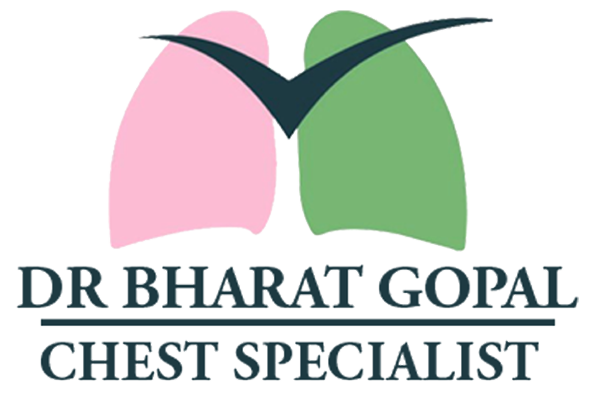Breathing Easy: A Guide to Preventive Pulmonology
Breathing is a fundamental and often overlooked aspect of our well-being. The respiratory system plays a crucial role in supplying oxygen to our bodies and expelling carbon dioxide, contributing to overall health. Preventive pulmonology focuses on maintaining respiratory health proactively, emphasizing strategies to prevent respiratory conditions before they become major concerns. In this guide, we will explore the significance of preventive pulmonology, its key principles, and practical steps individuals can take to breathe easily and foster long-term lung health.
Understanding Preventive Pulmonology
Preventive pulmonology is a branch of medicine that aims to identify, assess, and address factors that may compromise respiratory health before they escalate into serious conditions. Rather than solely focusing on treating existing lung diseases, this approach places a strong emphasis on adopting lifestyle changes, early detection, and interventions to maintain optimal lung function.
The Importance of Respiratory Health
Our respiratory system, consisting of the lungs and airways, is responsible for the exchange of gases necessary for cellular function. When this system is compromised, it can lead to a range of conditions, from common respiratory infections to chronic diseases such as asthma, chronic obstructive pulmonary disease (COPD), and even lung cancer. Preventive pulmonology seeks to mitigate risk factors, promote healthy behaviors, and detect potential issues early to preserve lung function and overall well-being.
Key Principles of Preventive Pulmonology
- Lifestyle Modifications:
Healthy lifestyle choices form the cornerstone of preventive pulmonology. This includes maintaining a balanced diet, engaging in regular physical activity, avoiding tobacco smoke, and minimizing exposure to environmental pollutants. These practices contribute not only to lung health but also to overall cardiovascular and metabolic well-being. - Early Detection:
Regular check-ups and screenings are essential for identifying potential respiratory issues early. Pulmonary function tests, chest X-rays, and other diagnostic tools can help healthcare professionals assess lung function and detect abnormalities before they lead to significant health challenges. - Immunizations:
Vaccinations are crucial for preventing respiratory infections, which can pose a risk to lung health. Influenza and pneumonia vaccines, for example, are recommended for individuals, especially those at higher risk due to age or underlying health conditions. - Environmental Awareness:
Being mindful of environmental factors that can impact respiratory health is vital. This includes avoiding exposure to pollutants, allergens, and occupational hazards that may contribute to respiratory diseases. - Education and Awareness:
Empowering individuals with knowledge about respiratory health and the importance of preventive measures is a key aspect of this approach. Understanding the impact of lifestyle choices and environmental factors allows individuals to make informed decisions about their well-being.
Practical Steps for Preventive Pulmonology
- Cultivate Healthy Habits:
Regular Exercise: Engage in physical activity to enhance lung capacity and cardiovascular health. Activities like brisk walking, jogging, and swimming can be beneficial.
Balanced Diet: Eat a diet high in whole grains, fruits, and vegetables. These foods provide essential nutrients that support respiratory and overall health.
Hydration: Stay well-hydrated to maintain the thin mucus needed for efficient lung function. - Avoid Tobacco and Secondhand Smoke:
Smoking is a leading cause of respiratory diseases, including lung cancer and COPD. Quitting smoking and avoiding exposure to secondhand smoke are crucial steps in preventive pulmonology. - Prioritize Indoor Air Quality:
Ensure good ventilation in living spaces.
Use air purifiers to reduce indoor pollutants.
Be cautious with household cleaning products and other substances that may release harmful fumes. - Stay Up-to-Date with Vaccinations:
Consult with healthcare providers to receive recommended vaccinations, especially flu and pneumonia shots. - Regular Health Check-ups:
Schedule regular check-ups with healthcare professionals to monitor lung function and address any concerns promptly.
Individuals with a family history of respiratory conditions may benefit from more frequent screenings. - Manage Stress:
Chronic stress can impact respiratory health. Adopt stress-reducing practices such as meditation, deep breathing exercises, or yoga. - Occupational Safety:
Be aware of potential occupational hazards that could affect respiratory health. Use protective equipment as needed. - Allergen Management:
Identify and manage allergens in the living environment, such as dust mites, pet dander, and mold, to reduce the risk of allergic respiratory conditions.
Challenges and Opportunities in Preventive Pulmonology
Despite the clear benefits of preventive pulmonology, several challenges exist. Access to healthcare services, awareness among the general population, and lifestyle factors are among the complexities that healthcare professionals face. Efforts to overcome these challenges include public health campaigns, community outreach, and the integration of preventive measures into routine healthcare practices.
Opportunities for advancing preventive pulmonology include leveraging technological advancements for remote monitoring of respiratory health, enhancing educational programs, and fostering collaboration between healthcare providers, public health organizations, and communities.
Conclusion: Breathing Easy for a Lifetime
Preventive pulmonology empowers individuals to take charge of their respiratory health, reducing the risk of developing chronic conditions and improving overall well-being. By adopting a proactive approach that combines healthy lifestyle choices, early detection, and environmental awareness, individuals can breathe easily and maintain optimal lung function throughout their lives. As we continue to unravel the complexities of respiratory health, embracing preventive measures becomes increasingly crucial for a healthier and more vibrant future.








